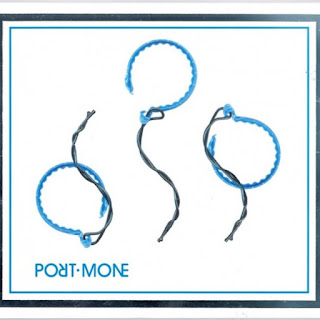I do believe that Sparks have released better albums than this over the last 20 years - but I do not think I have been this intrigued by their music since Lil Beethoven. Objectively speaking, The Girl Is Crying In Her Latte does not have the highs of, say, Hippopotamus. But equally, I do not think there is a single song on the LP that does not have a magic trick woven into it. The title song, for instance, may not distinguish itself all that much initially. However, when that majestic synth-line soars into space out of nowhere halfway through the song, the experience becomes unique.
And it is a unique album, even if it may be hard to put your finger on what it is that makes it so unique. But... is there another band that has remained this different, and this relevant, more than 50 years into their career?..
I believe the sound of The Girl Is Crying In Her Latte is that of good old art rock with various seemingly disparate elements thrown into it (including frightening things like glitch pop). But, filtered through the Mael brothers' taste and personality, it all works wonderfully. "Veronica Lake" rides on intense, faux-robotic minimalism like they own that sound (and they do). "Escalator" should fall apart under its uneventful electronic beat but ends up being strangely hypnotic instead. "You Were Meant For Me" starts like ugly electronic hell but has so much going on (including another one of those brilliant synth-lines from Ron Mael) that it soon becomes infectious. The relentless "Take Me For A Ride" is a hard-rock monster pulsating under some of the album's most beautiful orchestration that does bring to mind the sheer genius of Lil Beethoven.
I could go on. I could tell you that I find the dramatic atmosphere of "It's Sunny Today" mesmerising in a way that only The Cars' "Drive" could pull off a million years ago. I could tell you that "Nothing Is As Good As They Say", while a little too clean and straight-faced for this album, is absolutely unimpeachable lyrically (sung as it is from the perspective of a new-born getting frustrated with the prospect of, well, life). That "Gee, That Was Fun", while a fitting end to this brilliantly intriguing album, could become unbearable if this was to be their last statement.
But in the end all that matters is the ideas. They seep through everything, pile on top of each other and stun you again and again. The album is overflowing with ideas - and that, in the end, might be exactly what makes Sparks so unique. So different, so timeless, so endlessly relevant.
Rating: ★★★★½


